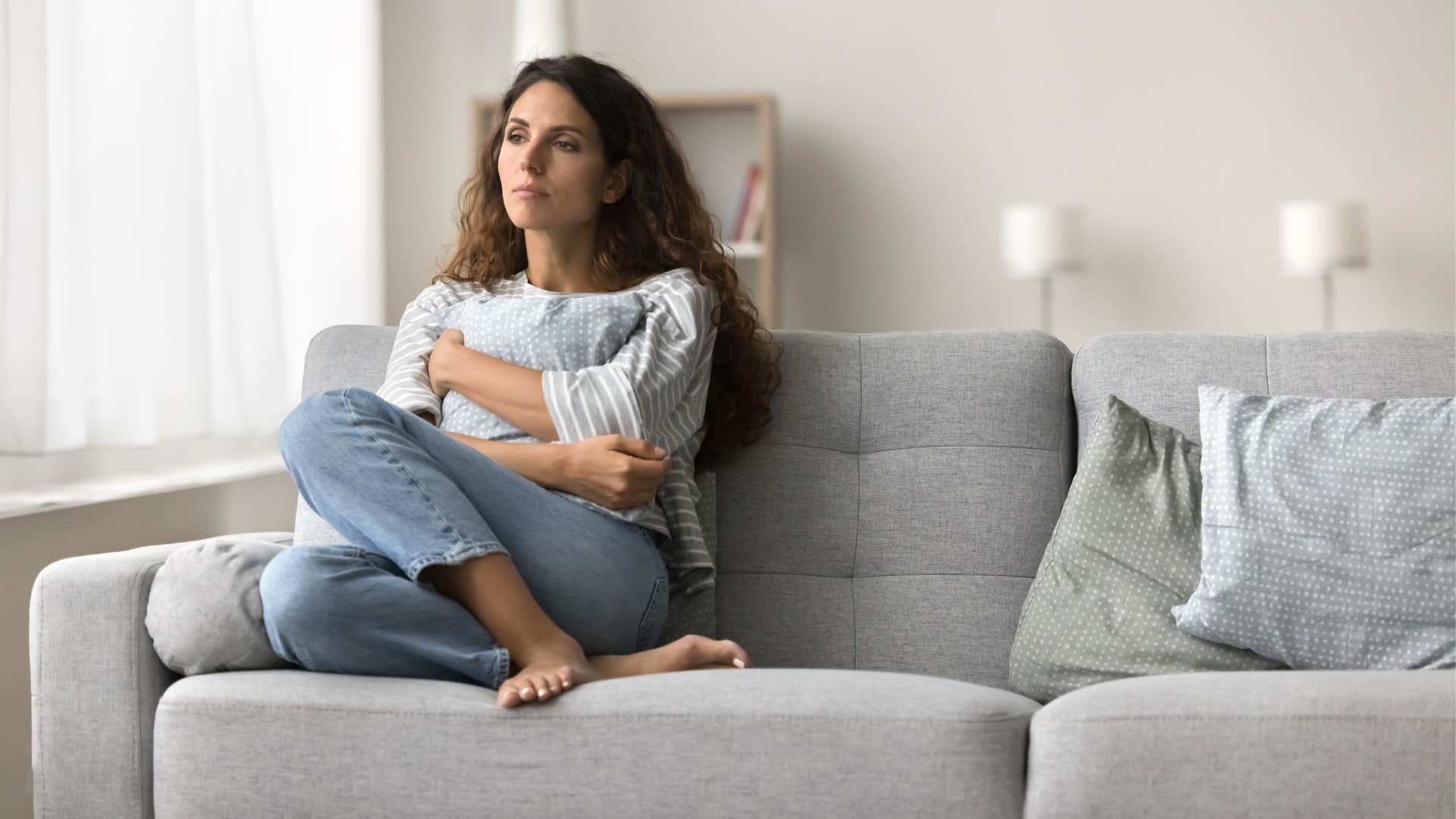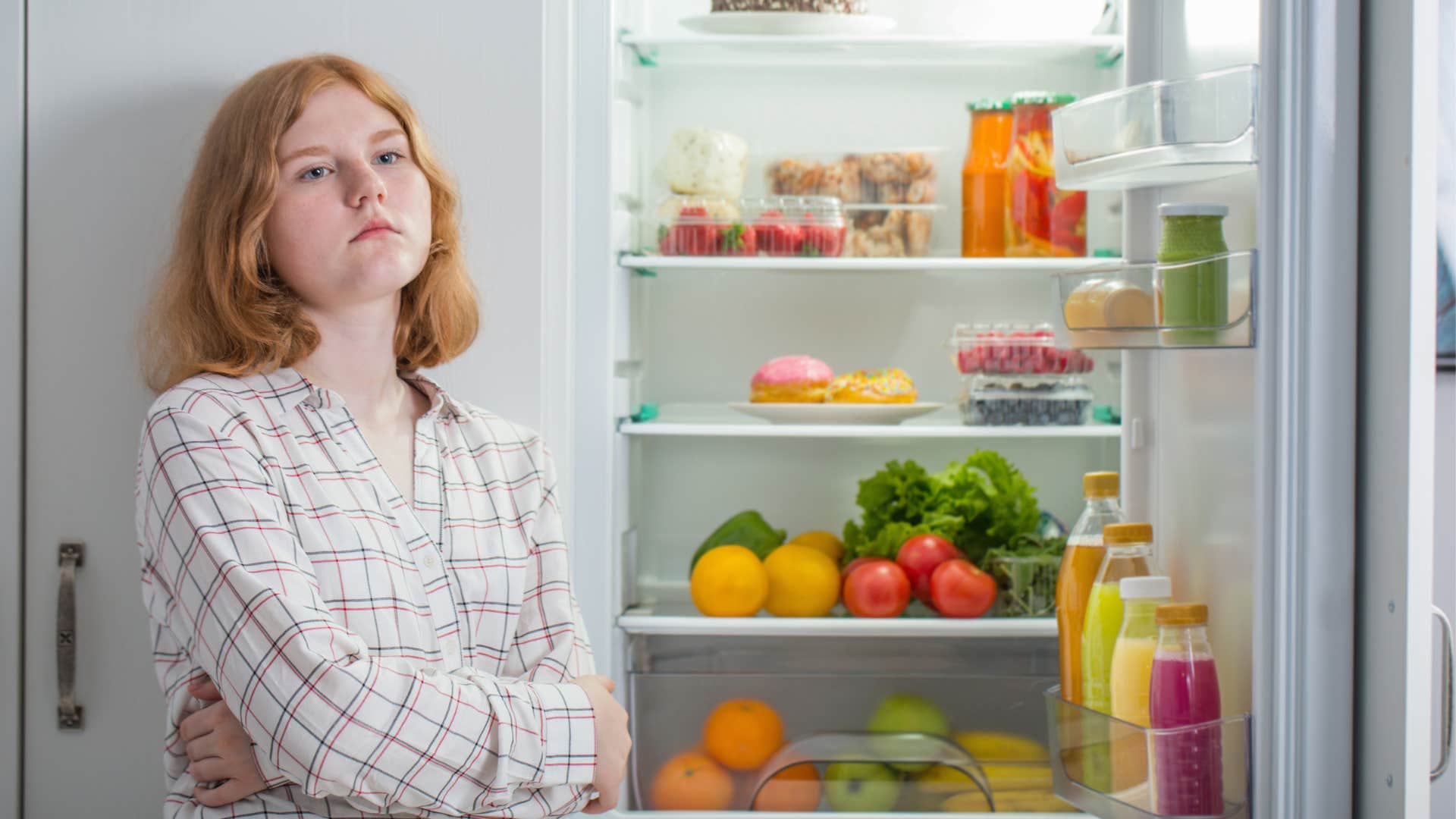11 Things Miserable People Do At Home That Happy People Avoid No Matter What
The way a person acts in their personal space can often be a result of their negative emotions.
 Inside Creative House | Shutterstock
Inside Creative House | Shutterstock Happy people are very protective of their overall well-being. They're hesitant to do anything that may jeopardize the progress they have made with their emotional state and ability to process and regulate their emotions effectively. On the other hand, for truly unhappy individuals, there are certain things miserable people do at home that happy people avoid no matter what.
Miserable people struggle to manage their emotions, so they feel less protective of how they feel. This causes them to be more open to certain activities or behaviors that only boost their negative emotions. And when a person already feels so bad, these emotions will influence the way they behave in quite a poor way.
Here are 11 things miserable people do at home that happy people avoid no matter what
1. Picking fights with loved ones
 PeopleImages | Shutterstock
PeopleImages | Shutterstock
While at home, a miserable person will likely try to pick fights with loved ones, which is something happy people don't do. These unhappy individuals struggle to manage their own emotions and cope with the way they are feeling. This, at times, may cause them to project their negative emotions onto others.
While miserable people tend to have difficulty effectively communicating and controlling their emotions, according to counselor Andrea M. Darcy, happy people do positive things that help them regulate and process their emotions. They are much more likely to seek the support of their loved ones during hard times than to cause a fight with them.
2. Avoiding self-improvement hobbies
 fizkes | Shutterstock
fizkes | Shutterstock
Not immersing themselves in self-improvement hobbies is one of the unfortunate things miserable people do at home that happy people avoid no matter what. Happy people embrace hobbies that help reduce their stress, give them a sense of purpose, and improve their self-esteem. But unhappy people rarely engage in these kinds of activities, and by avoiding them they are more likely to get stuck in a cycle of negative thoughts and self-perceptions.
As psychology professor Jaime Kurtz explained, "Coming home and turning on the TV may provide a brief distraction, but it doesn't address your damaged ego head-on. Now imagine that after work you head out to your soccer league or pottery class. These activities are more than merely distracting. They remind you that there are many facets to your self-concept."
3. Keeping their space cluttered
 Inside Creative House | Shutterstock
Inside Creative House | Shutterstock
While many miserable people keep their personal space cluttered at home, happy individuals tend to strongly dislike existing in cluttered environments. Their clutter may be linked to the negative emotions they are feeling, but by staying in that space, they make it very hard for their internal state to improve.
Happy people are focused on enhancing their well-being and doing things that create feelings of joy. They understand that their environment can influence their emotions, and make it a point to steer clear of clutter.
"Clutter and mess can create more stress and anxiety, but by cleaning, organizing, and reducing the clutter, people are able to take control of their environment and create a more relaxing environment that helps them focus better on the more pressing issues in their lives," certified life coach Sherri Gordon revealed.
4. Using distractions to avoid confronting emotions
 Victoria Labadie | Shutterstock
Victoria Labadie | Shutterstock
Using distractions to avoid confronting emotions is an unhealthy way of trying to cope with feeling negative feelings. While happy people don't distract themselves in this way, miserable people will do everything they can to not discuss uncomfortable things they feel.
"Distractions like phones, binge-watching, and overworking offer temporary relief, but they also prevent us from learning how to regulate our emotions and clear mental clutter," explained licensed clinical social worker and psychotherapist Leah Marone. These distractions make it hard for people to ever actually process their emotions and it hinders their ability to experience personal growth.
5. Putting off important tasks
 MAYA LAB | Shutterstock
MAYA LAB | Shutterstock
Miserable people are much more likely to procrastinate on important tasks. In the moment, they want to experience an immediate boost in their mood, rather than focusing on the long-term benefits of completing those tasks.
Happy people complete tasks sooner rather than later because they are better at managing and regulating their emotions. They want to behave in a way that is most conducive to bettering their mental health, so putting things off that cause anxiety and stress to build up is not something they are okay with practicing.
6. Complaining about their lives to others
 lammotos | Shutterstock
lammotos | Shutterstock
Most miserable people will find themselves constantly complaining about their lives to others, finding every little thing to be upset about. But this is a coping mechanism, and happy people fully understand that. Happy people are more focused on solutions, and instead of complaining, they are action-oriented and practice gratitude.
Using complaining as a way to cope with negative emotions only fuels unhappiness even more. While miserable people may try and use this to seek sympathy or feel a sense of control in their lives, it typically only reinforces their negative feelings. And because no real change in their lives is occurring, it leaves them hopeless.
7. Using electronics excessively
 Prostock-studio | Shutterstock
Prostock-studio | Shutterstock
Excessive use of electronics is another of the things miserable people do at home that happy people avoid no matter what. While there are positives to using technology, having too much screen time in a day has many negative effects.
It may pull them away from truly connecting with others, and the relationships they have may suffer if they never want to engage in-person. If they are spending much of their time on social media, specifically, it can lead to social comparison, which damages their self-worth and confidence. But happy people make screen time limits for themselves to avoid falling into a negative thought cycle.
8. Eating poorly
 Maya Kruchankova | Shutterstock
Maya Kruchankova | Shutterstock
Emotions can have a major impact on the healthy or unhealthy habits a person develops. According to experts from the Mayo Clinic, "Although some people eat less in the face of strong emotions, if you're in emotional distress you might turn to impulsive or binge-eating, quickly consuming whatever's convenient without enjoyment. In fact, your emotions can become so tied to your eating habits that you automatically reach for a treat whenever you're angry or stressed without thinking about what you're doing."
This becomes a coping mechanism for many. Unhealthy eating can temporarily boost a person's mood due to the dopamine release that occurs. While healthy people may not always eat that way, they are less likely to eat poorly as a result of their emotions.
9. Engaging in negative self-talk
 DimaBerlin | Shutterstock
DimaBerlin | Shutterstock
While at home, unhappy people engage in negative self-talk, while this is something joyful people avoid altogether. When miserable people already feel bad, negative self-talk only reinforces those thoughts and depletes their self-worth.
It can leave them believing things about themselves that are not at all a reflection of reality. But happy people prefer to focus on having a positive mindset that helps them feel inner peace and self-confidence.
10. Neglecting self-care
 MAYA LAB | Shutterstock
MAYA LAB | Shutterstock
If a miserable person feels poorly about themselves, they may feel undeserving of self-care and taking time to boost their mental and emotional health. As clinical psychologist Evan Parks explained, "We believe life gives us what we deserve, and we must earn anything good that comes into our life. We struggle to see ourselves as good enough to earn the right to enjoy self-care."
Meanwhile, happy people are already focused on developing a positive view of themselves. And this is why they have an easier time engaging in self-care daily, whether it's a bit of pampering or just relaxing after a long day.
11. Having an irregular sleep schedule
 Sarawut Kh | Shutterstock
Sarawut Kh | Shutterstock
Sticking to an irregular sleep schedule is another of the things miserable people do at home that happy people avoid no matter what. While happy people understand the importance of getting a good night's rest, unhappy individuals aren't as concerned.
Irregular sleep tends to have a negative impact on a person's overall mood. Happy people are very protective of their emotional state and prefer to practice habits that allow them to regulate their emotions. And while miserable people might want to make changes with their sleep, negative emotions, like sadness or anxiety, make it difficult to prioritize sleep, leading to abnormal patterns.
Kamryn Idol is a writer with a bachelor's degree in media and journalism who covers lifestyle, relationship, family, and wellness topics.

